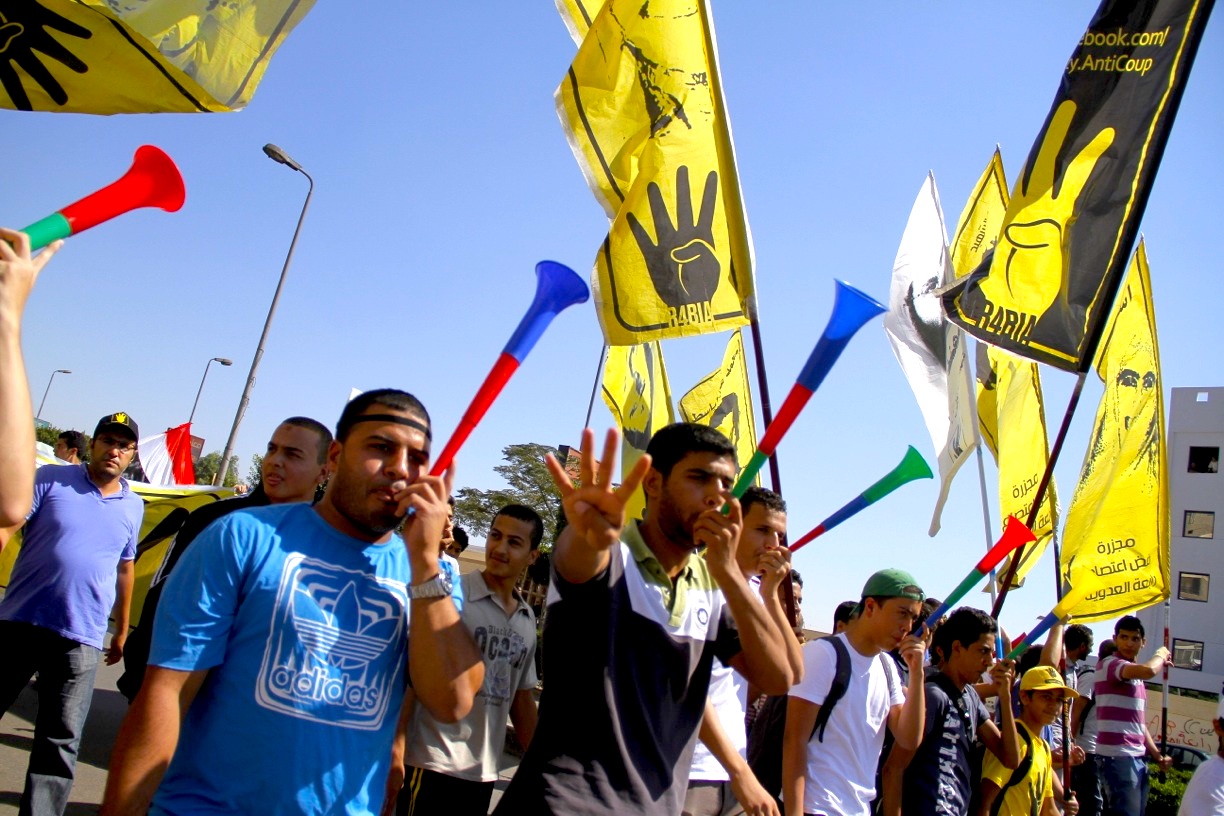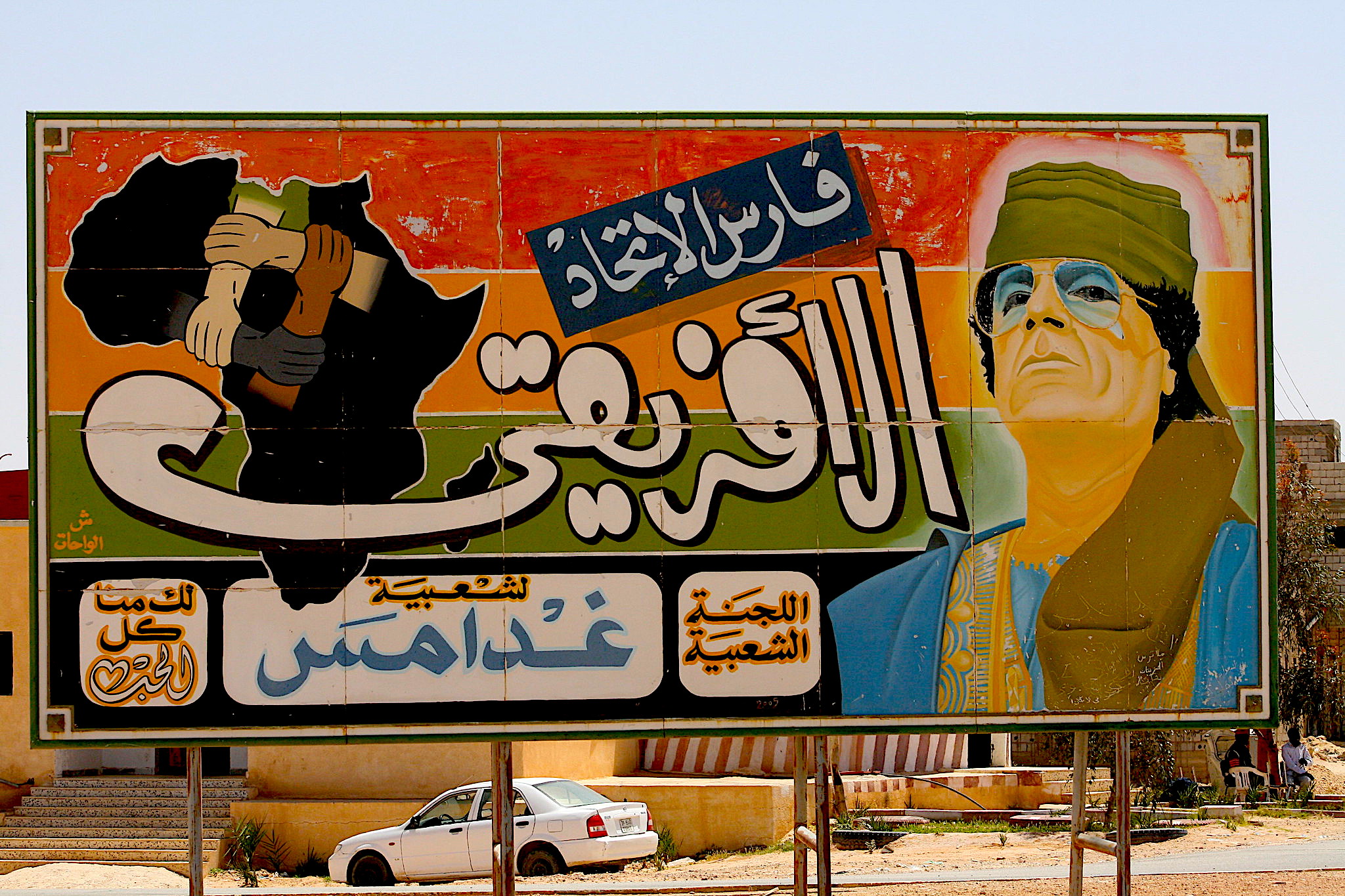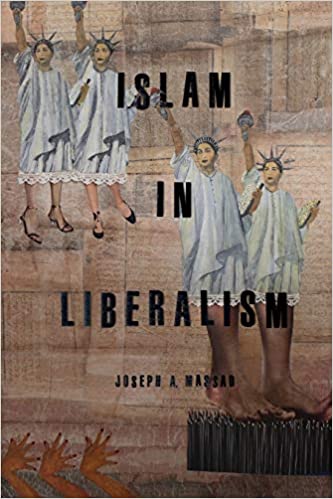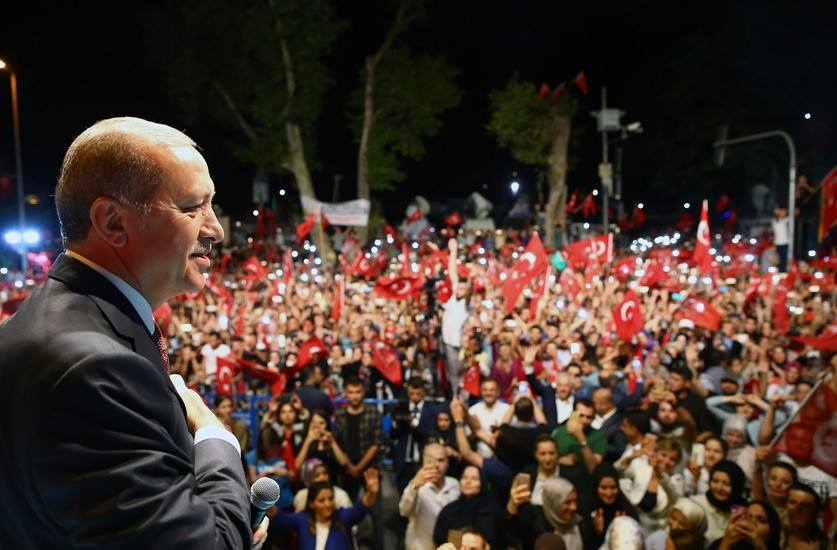As`ad AbuKhalil describes the context in which the leadership of the Brotherhood has begun holding secret talks with Iran and its allies.

Pro-Brotherhood protesters in Cairo, October 2013. (Hamada Elrasam for VOA, Wikimedia Commons)
By As`ad AbuKhalil
Special to Consortium News
 Arab uprisings have registered like a roller coaster ride for the Muslim Brotherhood: quick euphoria was soon replaced by doom and gloom.
Arab uprisings have registered like a roller coaster ride for the Muslim Brotherhood: quick euphoria was soon replaced by doom and gloom.
At first, the Arab rebellions beginning in 2010 seemed to be a process in which the Muslim Brotherhood was about to take over political power in several Arab countries. In Tunisia, the local branch, An-Nahda, was the ultimate winner in elections and remains the biggest political force in the country.
In Egypt, the Muslim Brotherhood was the clear winner from the overthrow of Hosni Mubarak and achieved the largest parliamentary bloc in Egypt’s freest election ever right after his downfall. A Muslim Brotherhood candidate, Muhammad Morsi, was elected president.
In Libya, the Brotherhood was a force to be contended with, as it was in Yemen. But internal conflicts obstructed the electoral process in both countries, and prevented an almost inevitable seizure of power by the Brotherhood. (The UAE invested its troops and money against the Brotherhood in Libya, while the Houthis obstructed Brotherhood plans in Yemen).
In Syria, the Muslim Brotherhood was dominant among the Syrian opposition-in-exile and several rebel groups were mere offshoots of the Brotherhood.
But all those historical achievements of the Brotherhood did not last long.
In the early phase of the Arab uprisings (from 2011 until 2013), the Qatari-Turkish alliance was the dominant force within the Arab League (although Turkey is not, obviously, a member). It was the Qatari regime that promoted the NATO invasion of Libya, and secured the support for Western intervention to overthrow Muammar Qadhdhafi.

Qadafi billboard In Derj, Libya, 2009. (Carsten ten Brink, Flickr, CC BY-NC-ND 2.0)
Saudi Arabia — before the rise of Crown Prince Muhammad bin Salman (MbS) in 2015 – was largely on the defensive. It was at the initiative of the UAE’s strong man, Muhammad Bin Zayid (MbZ), that the course of Arab affairs shifted.
The UAE, along with the Saudi Arabia, declared an end to the era of Qatari dominance in Arab politics. It was then that both MbS and MbZ declared open war against the Muslim Brotherhood, including Hamas in Palestine—which started as branch of the Brotherhood.
Western Support
Ironically, the Muslim Brotherhood began in British-controlled Egypt in 1928 and survived only due to Western and Gulf sponsorship during the Cold War. In 1954, following an assassination attempt on the life of Egyptian leader Gamal Abdul-Nasser, the Egyptian government declared war on the Brotherhood and drove it underground. Leaders were arrested and many had to flee abroad. But the campaign against the Brotherhood was not in any way as ruthless as the campaigns of repression in either Saudi Arabia or Bahrain — or Iran for that matter; executions were rare while prison sentences were the norm.

Egypt’s Gamal Abdel Nasser. (Wikimedia Commons)
Nasser at the time was pushing a version of secularized and progressive Arab nationalism, and its rival reactionary Islamist movements were not in vogue; they were seen as anachronistic especially as they opposed the wildly popular Nasser. The Brotherhood wanted to impose an austere and conservative version of Islamic rule, while Nasser was an advocate of secularized Arab nationalism.
The Brotherhood opposed the progressive social agenda of Nasser and even opposed his calls for Arab unity. Western powers and Gulf regimes sheltered, supported, and even armed the Brotherhood, which was out of touch with the mass public opinion for much of the Nasserist era (from 1956-1970).
Nasser effectively mocked them and presented them — correctly — as tools of Western powers and Arab reactionary regimes. There is a famous clip on YouTube of Nasser even mocking the request presented to his regime by the leader of the Muslim Brotherhood to force the veil on Egyptian women. Nasser pointed out, humorously, that the Brotherhood’s leader failed to impose the veil on his own daughter.
Political Islam
The revival of what is called “political Islam” (the ideology that seeks the Islamization of politics and society) was undertaken as a political project, after Nasser’s death, by Anwar Sadat. Sadat, concerned about the power of the left and Arab nationalism on Egyptian college campuses, unleashed the Muslim Brotherhood, and other religious-oriented movements and released their leaders from prison (while imprisoning leftists and progressives).
 The Saudi regime — a close ally of Sadat — also participated in sponsoring and funding the Muslim Brotherhood in the Arab world and the world at large. Reactionary regimes utilized the organizational structure of the Brotherhood to combat the vestiges of Nasserism and progressiveness in the Arab world. Western powers were not left behind, as they too utilized “political Islam” against progressiveness (see Joseph Massad’s Islam in Liberalism).
The Saudi regime — a close ally of Sadat — also participated in sponsoring and funding the Muslim Brotherhood in the Arab world and the world at large. Reactionary regimes utilized the organizational structure of the Brotherhood to combat the vestiges of Nasserism and progressiveness in the Arab world. Western powers were not left behind, as they too utilized “political Islam” against progressiveness (see Joseph Massad’s Islam in Liberalism).
Gulf regimes, in close coordination with Western powers, used oil wealth to fund and arm Islamists in Afghanistan and elsewhere against communist regimes and movements. In Syria in the late 1970s, Israel, Western governments and Jordan all supported the Muslim Brotherhood against the regime. (King Hussein later offered a public apology and subsequently improved his relations with Syrian leader Hafidh Al-Asad, who handled the threat of the Muslim Brotherhood with brutal and savage campaigns of repression).
Under Sadat, the Muslim Brotherhood enjoyed a privileged political position, as did the Brotherhood in Jordan from the 1950s —until it became a political force in the 1990s.
Impact of 9/11
But Sept. 11 changed the attitude of Western governments and especially Gulf governments. Saudi minister of interior, Prince Nayif Bin Abdul-`Aziz, famously blamed the Muslim Brotherhood for Saudi Arabia’s problems and said that “the Muslim Brotherhood has destroyed the Arab world.” He failed to mention that the Brotherhood only survived the Nasserist era due to Western and Gulf support.
Prince Nayif himself and his brothers in the royal family had invited Muslim Brotherhood figures to shape the eduction and media of Saudi Arabia. Western attention to Saudi support of Islamism, after Sept. 11, changed the course of Saudi foreign policy, and launched Saudi rapprochement with the Israeli lobby. The UAE quickly followed suit, and declared open warfare against the Brotherhood.
Furthermore, the Brotherhood (under different names) was the most powerful political current inside the UAE. As those two Arab regimes were distancing themselves from the Brotherhood, Qatar and Turkey (under Recep Tayyip Erdogan) became the two big sponsors of the Brotherhood in the region, and wanted to use it against their enemies (chiefly, Saudi Arabia). Aljazeera, which is run by the Qatari regime, gave a huge platform for the Brotherhood, and since 2011, it became its public face, harming the image and credibility of Aljazeera, and substantially reducing its viewership.

July 19, 2016L Turkey’s President Recep Tayyip Erdogan addresses citizens in front of his residence in Istanbul. (Presidency of the Republic of Turkey)
The recent crisis of the Brotherhood has stemmed from the reconciliation between Qatar and Saudi Arabia and between Egypt and Turkey. Turkey housed various Arab TV stations which were loyal to the Brotherhood. One of the first terms of the agreement between Qatar and Turkey and their rivals was to lower the tone of Brotherhood’s media from Turkey and Qatar.
Erdogan, two weeks ago, directed Brotherhood TV stations operating from Turkey to end their attacks on Gen. Abdel Fattah el-Sisi, Egypt’s military ruler (who is supported chiefly by the West, Saudi Arabia and UAE). Hamas also now suffered because neither Qatar nor Turkey are interested in supporting a military combat course of action against Israel, for fear of displeasing the U.S.
The Dilemmas
The Brotherhood is facing key dilemmas: they are declared a terrorist organization by Saudi Arabia and the UAE (which run the Arab League) and its sponsors are reducing political — and presumably financial — support. It is in this context that the leadership of the Brotherhood has been recently holding secret talks with Iran and its allies in the region.
Hizbullah recently held its first talk with Al-Jam`ah Al-Islamiyyah (the Lebanese branch of the Brotherhood) in over a decade. Hamas is now closely coordinating with Hizbullah and the relationship may be returning to the “era of alliance” when both movements were in the same camp, and coordinated their military activities.
The Syrian regime, however, remains a stumbling block in that new regional realignment. But the Muslim Brotherhood (according to sources involved in those negotiations) is willing to reassess its past attitudes and even enter into negotiations with the Syrian regime.
It seems likely that Arab politics will undergo yet another realignment, especially if Iran and the U.S. reach an agreement on the nuclear deal. That would strengthen the hand of Iran and its allies and would encourage the Brotherhood to reach a new understanding.
But the Saudi-UAE alliance would regard any re-emergence of the Brotherhood as a mortal threat and would respond fiercely, though the military options of MbS and MbZ are limited, especially after the disastrous intervention in Yemen and the end of the Trump presidency.
As`ad AbuKhalil is a Lebanese-American professor of political science at California State University, Stanislaus. He is the author of the “Historical Dictionary of Lebanon” (1998), “Bin Laden, Islam and America’s New War on Terrorism (2002), and “The Battle for Saudi Arabia” (2004). He tweets as @asadabukhalil
The views expressed are solely those of the author and may or may not reflect those of Consortium News.
Please Support Our
Spring Fund Drive!



“Aljazeera, which is run by the Qatari regime, gave a huge platform for the Brotherhood, and since 2011, it became its public face, harming the image and credibility of Aljazeera, and substantially reducing its viewership.”
I had noticed this also. When the BBC was brought to heel by the Hutton enquiry after the suspicious death of Dr David Kelly, many of its best reporters and producers left for Al Jazeera English. In its early years under Bush II and the beginning of the Obama era, Al Jazeera did some excellent reporting on the occupations of Palestine and Iraq.
But with Hillary Clinton ensconced in Foggy Bottom and seeking to use the Brotherhood to remake the Middle East, there was a swift change in editorial line to focus on US official enemies, especially the secular Arab republics where the Brotherhood was a contender to become a new pro-US client government. Its coverage of the attacks on Libya and Syria was and is beyond shameful, swiftly degenerating into ‘Muslim Brotherhood TV.’
“especially if Iran and the U.S. reach an agreement on the nuclear deal.” How could this be since the USA refuses to lift the sanctions and Iran will not and should not give in to this continued illegality?
Thanks to As’ad for this explanation. is Syria’s government really a “régime”?
” is Syria’s government really a “régime”?
My thought also and I know better but that is an Amerikan talking point.
Thanks for more history lessons.